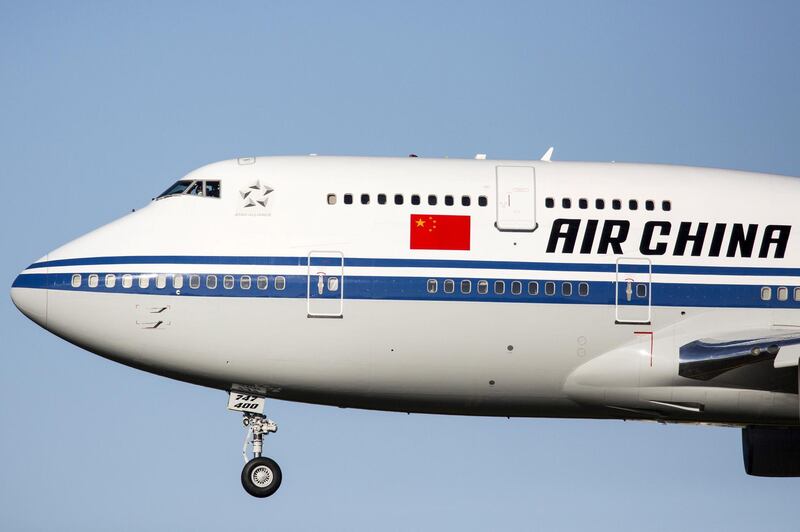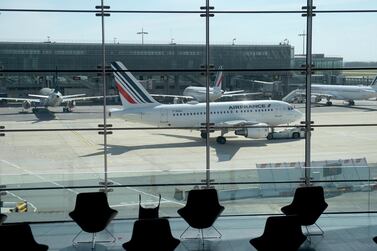Boeing on Wednesday reported dismal financial results as the Covid-19 pandemic and the 737 Max grounding took a toll on the plane maker’s balance sheet.
The company reported a $2.4 billion (Dh8.82bn) loss in the quarter ending on June 30 as revenues dropped by 25 per cent to $11.8bn.
The loss was bigger than many Wall Street analysts predicted.
The company based in Seattle, which previously suspended shareholder dividends and announced a 10 per cent staff cut, said further job losses were probable.
"Regretfully, the prolonged impact of Covid-19 causing further reductions in our production rates and lower demand for commercial services means we'll have to further assess the size of our workforce," Boeing chief executive Dave Calhoun wrote to to employees.
"This is difficult news, and I know it adds uncertainty during an already challenging time.
"We will try to limit the impact on our people as much as possible going forward."
Before the pandemic hit, Boeing had already been going through financial difficulties with its best-selling aircraft.
The 737 Max was grounded last March after two deadly crashes, leading to hundreds of orders being cancelled or deferred.
Although it said it was making “steady progress” in returning the narrow-body jet to the skies, the pandemic has delayed that process.
Mr Calhoun said the company would delay delivering the aircraft again until the fourth quarter, after regulatory approval, rather than the third.
"We remained focused on the health of our employees and communities while proactively taking action to navigate the unprecedented commercial market impacts from the Covid-19 pandemic," Mr Calhoun said.
"We're working closely with our customers, suppliers and global partners to manage the challenges to our industry, bridge to recovery and rebuild to be stronger on the other side."
Although the company’s stock initially rose in pre-market trading on Wednesday, the gains were quickly erased after Boeing revealed it would cut production of key aircraft types because of the pandemic.
Its commercial deliveries for the quarter sank from 90 in the second quarter of last year to 20 in the same period this year.
The aerospace giant slashed production of its biggest twin-aisled jets, delayed its 777X by up to a year and began winding down output of the 747 superjumbo as the pandemic further dampened the demand for wide-body aircraft.
The commercial aviation industry had a glut of wide-body aircraft before the pandemic hit and Boeing has long been at the centre of an escalating trade dispute between the US and China.
China had plans to buy a few hundred wide-bodies from Boeing, but it is now forcing its airlines to buy home-made jets.
Boeing said it would cut production for its 787 wide-body to six a month in 2021, down from a previous goal of seven.
It was the third such cut since a year ago when a record 14 planes were made a month.
The company said it would also cut combined output of the 777 mini-jumbo and its new 777X sister model to two a month in 2021 from a previous goal of three.
It will also delay the 777X entry to service by a year to 2022.
An analysis on Tuesday revealed that orders for new passenger aircraft fell to their lowest in a decade as the pandemic led to a collapse in global air travel demand.
Only 19 aircraft were ordered globally in the second quarter, down 97 per cent from the same period in 2019 when airlines ordered 577 jets, UK trade body ADS said.







